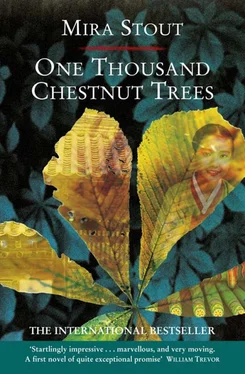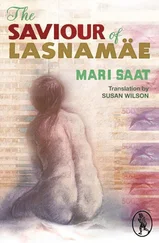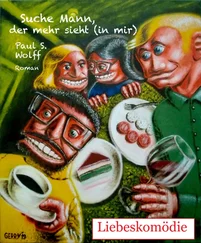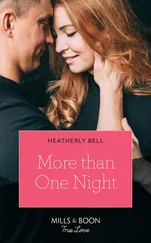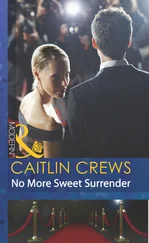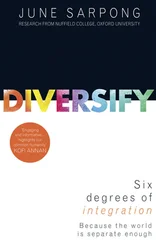‘War is war,’ she said simply. ‘Bad things happen.’
But I began to wonder. I wondered at my mother’s silence all these years. It was full of unanswered questions. Apart from this single conversation, she had barely mentioned the events I was now reading about. Had they seemed irrelevant to her new life, been a source of discomfort? Perhaps she had been sparing herself the hurt of my habitual indifference. It was true, I had shut out her stories as a child.
My mother and father had talked of going to Korea one day, but my mother quietly resisted it. Dad and I didn’t question her decision to stay away from Korea. Perhaps she dreaded the immense changes she might discover, both in herself and in the war-battered country she had fled. She had returned only once since then, after her parents’ deaths. She had not seen them again, nor been able to say goodbye before they died. This was so sad to me that I’d never dared ask her about it.
I had often wondered why she was so self-contained in her feelings. Reading about the country’s traumas now, I began to understand her a little more. It was only in her playing that my mother expressed deep emotion. Through the violin she could enjoy a safe, dignified release, externalized, separate from herself. Music seemed to liberate and to structure her feelings. Perhaps she feared that if she ever started grieving her losses, she might be unable to stop. Maybe time and distance had frozen them, as a kindness, deep inside her.
I looked out of the dining-room window quite exhausted from reading. The horizon returned my stare with peaceful blankness. There was no doubting that New England, with its stone walls, woods, and red barns, was an utterly different world. The Yankee landscape had its own past to digest. Murdered colonial settlers lay beneath the foundations of the ruined mill behind our house. The summer camp nearby, Camp Winnepesaukee, had a quaint Native American name, but no Native Americans remained in the county. Ghosts of unknown soldiers, Ethan Allen’s Green Mountain boys, were said to haunt the overgrown woods nearby. A Mississippi-born Vietnam veteran turned motel-owner had shot himself in the head on our road in 1974. I felt little connection to any of it.
America had been fortunate to avoid wars at home this century; its recent history seemed to contain mostly the weird, scattershot tragedies of unlucky motorists and airline passengers, assassins, terrorists, and lone maniacs. Apart from conveniently invisible Vietnam veterans, America’s sufferings were unusually noisy and individualistic; celebrated in internationally-televised courtroom battles and sumptuous spreads of marital woe in Life magazine and Paris Match.
Korea’s annexation, wars, and partitioning had been blows to the roots of its nationhood, withstood in a global silence. Its obscurity, aristocratic disdain for trade and militarism, and deliberate aloofness from the West ensured that no one cared about its traumas. Korea was too old and complicated to be understood by a world that worshipped Youth and Caucasian notions of glamour. What did it matter if Korea had been the artistic, intellectual, and spiritual centre of the Orient in the eleventh century, advancing painting, ceramics, medicine, Buddhism, and cartography, producing books in movable type in 1234 – two centuries before the Gutenberg Bible – or that pilgrims, monks, poets, scholars, courtiers, painters, goldsmiths and ceramicists had come to learn at her feet. Again, in eighteenth century Choson, Korea’s level of civilisation was unsurpassed in the Far East. But twentieth-century Korea was war-scarred and rebuilt; its back still turned somewhat defensively against the encroaching West, whose condescension Korea felt keenly.
When my mother returned from her concert tour a few days later, violin-case in one hand, suitcase in the other, I welcomed her differently. Maybe I imagined it, but her face looked more complete to me, and slightly harder, too.
As she walked up the flagstone path and handed her suitcase to my father, it occurred to me for the first time that she must have been carrying cases when she first arrived in America. There had been a moment just as specific as this one. Had she walked down a gangplank? What would she have brought with her? Had anything survived from those days? I tried to imagine her as she was then, but could only picture her in a snapshot from the late 1950s, when she was a music student in New York. How different she looked then, her face round and babyish, hair bobbed and permed; barely recognizable. She had long ago lost the open vulnerability of that sheltered girl from Seoul. I remembered a photograph of her even further back, in the forties, before leaving Korea. She was standing on the wide bank of the River Han in a brown overcoat, a tiny figure against a vast blue sky. It was taken at such a distance that you could barely make out her face. Over time the colours have bleached out, the image gradually disappearing in its frame.
Looking at my parents’ backs as they climbed the front steps, I realized how incomplete my knowledge was of them both. Perhaps I would always see them through the keyhole of childhood, reduced and truncated by my own self-interest, their limbs moving predictably in and out of the light; Mother’s hand stirring a soup-pot, tuning her violin, Dad’s shoulders hunched over a canvas, shovelling snow, studying the sports results in the newspaper. The keyhole was dark during years of absence; boarding-school, summers, and university. Periodically I sought clues in the enigmatic black-and-white tableau of their wedding photograph – the disapproved-of wedding that neither set of parents had attended on racial objections – but their young, exultant faces revealed nothing but youth and exultation, their mobile eyes frozen in the recording of the moment.
There was a land-locked familiarity about my parents; I had been content to stick to the limited territory I knew, to ignore their pasts, and avoid the entire ocean of their inner lives. Perhaps this was how it was meant to be between parents and children, our lives unequal parallel lines, never meeting. But it no longer felt quite right.
That night my mother regained control of the kitchen with an assured clatter, and as usual, prepared us a fine quasi-Eastern, quasi-Western supper; homemade mandu-guk (dumpling soup) with Chinese leaf, and Irish beef stew – kimchi optional – accompanied by rice and potatoes. Despite decades of inculcation, Dad still preferred potatoes to rice, and my mother rice to potatoes. I ate both.
I told my mother about the books I’d read. She listened carefully, and said little. She carried on eating quietly. She gave me a penetrating, measured look, neither warm nor hostile, which said, ‘We’ll see how long this interest lasts.’
After supper when my father went upstairs to watch the news, my mother made some ginseng tea and we sat down together a bit edgily, as always. Like many daughters and mothers, we had had fearsome disagreements over the years, but ours were magnified by a cultural gulf.
My mother had been a distant and rather puzzling figure, as unpredictable and all-powerful as the weather. Often abroad on concert tours, her absences and bad moods affected me like rain. Early on, I had been raised mostly by nannies. Feeling excluded by my father and me, my mother was often perfectionistic when she returned home, and I shrank from the force of her criticisms. Yet when she was happy, it was as if the sun had broken through at last, transforming everything, bestowing a warmth – that only she could bring – to cold corners of my being. Her kindness was never cloying or phoney, but vital.
We disagreed over petty things – her convent strictness over manners, clothes, curfews, and boy-girl etiquette – but more fundamentally, we did not speak the same language. I could not understand her mother tongue. Even when she spoke in English, the meaning of her words was pure Korean. I did not understand what she meant by ‘respect’: to me, it meant politeness; to her, it meant filial piety – children revering their parents. How did one revere? I thought it unfair to be expected to behave in ways I had never seen practised. America did not tend to produce reverent teenagers; why should I be the first?
Читать дальше
